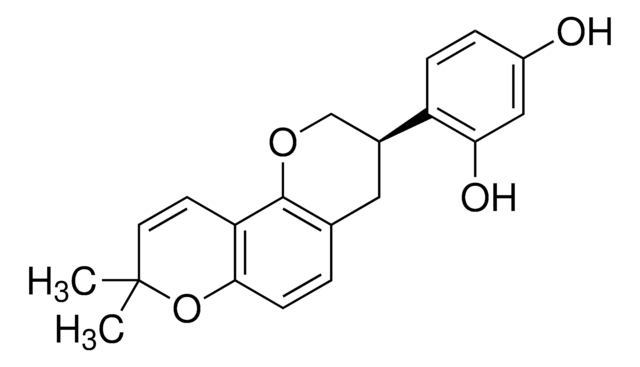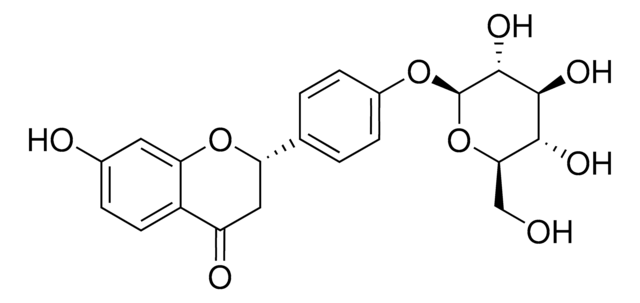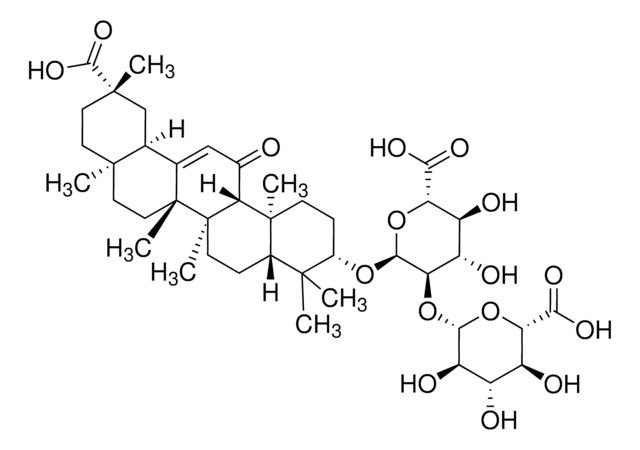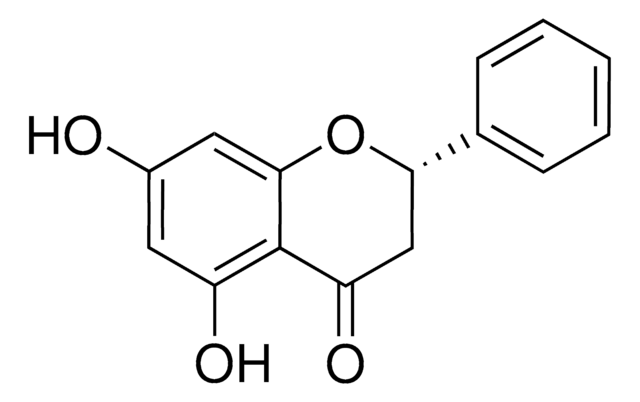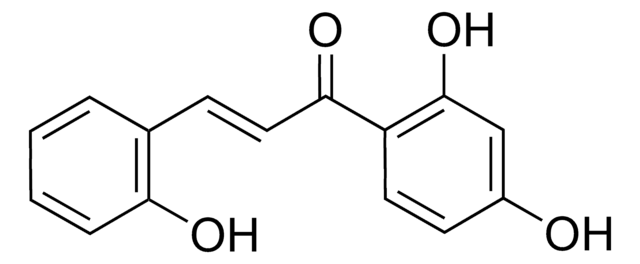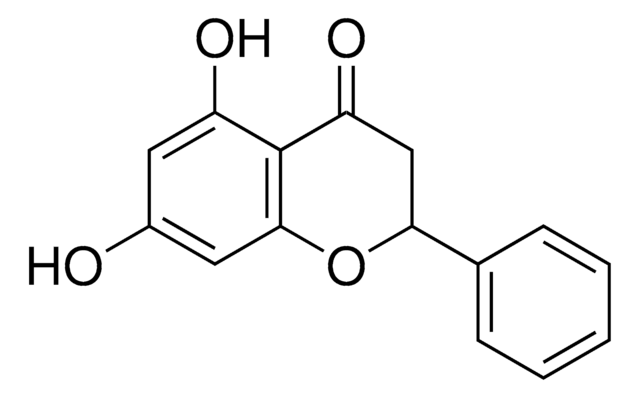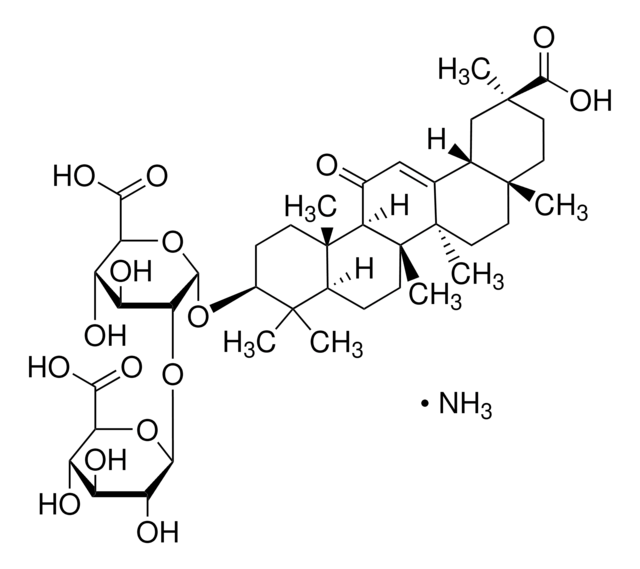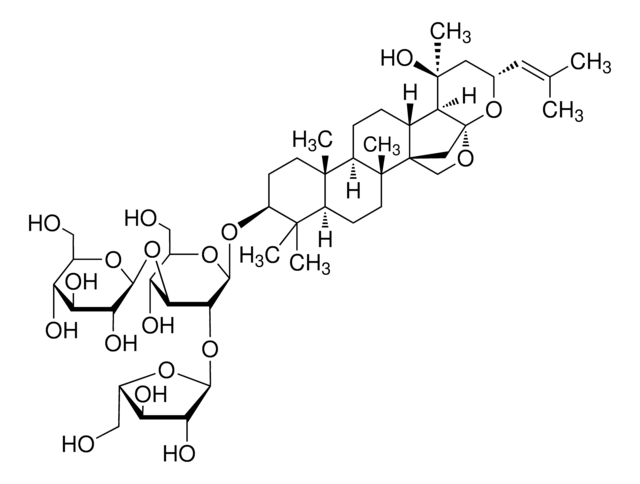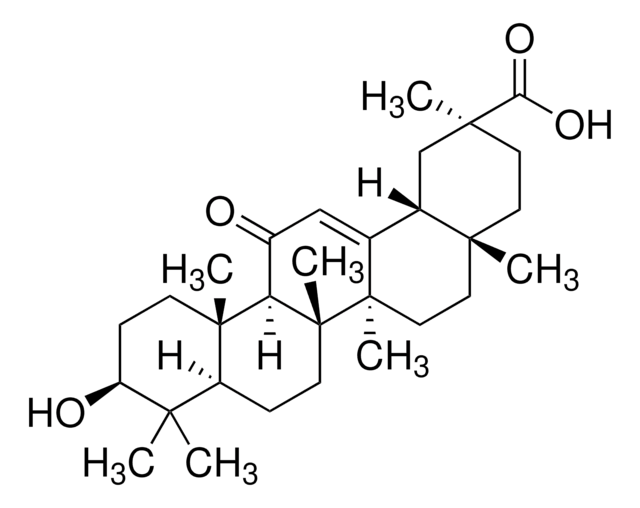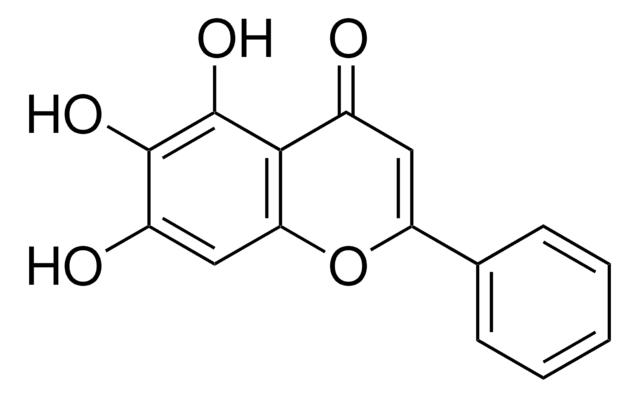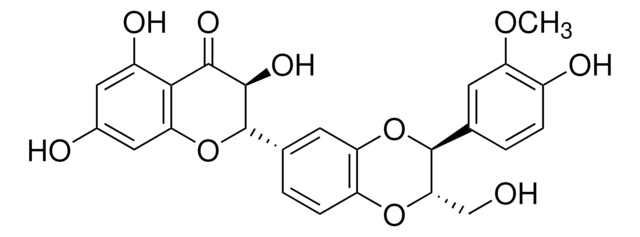G9548
Glabridin
≥98% (HPLC), powder, isoflavan
Synonym(s):
4-[(3R)-3,4-Dihydro-8,8-dimethyl-2H,8H-benzo[1,2-b:3,4-b′]dipyran-3-yl]-1,3-benzenediol, Glabridin, (R)-4-(3,4-Dihydro-8,8-dimethyl-2H,8H-benzo[1,2-b:3,4-b′]dipyran-3-yl)-1,3-benzenediol
About This Item
Recommended Products
Product Name
Glabridin, ≥98% (HPLC), powder
Quality Level
assay
≥98% (HPLC)
form
powder
color
white to light brown
solubility
DMSO: 5 mg/mL, clear (warmed)
storage temp.
room temp
SMILES string
CC1(C)Oc2ccc3C[C@@H](COc3c2C=C1)c4ccc(O)cc4O
InChI
1S/C20H20O4/c1-20(2)8-7-16-18(24-20)6-3-12-9-13(11-23-19(12)16)15-5-4-14(21)10-17(15)22/h3-8,10,13,21-22H,9,11H2,1-2H3/t13-/m0/s1
InChI key
LBQIJVLKGVZRIW-ZDUSSCGKSA-N
Looking for similar products? Visit Product Comparison Guide
Application
- to analyze its transthyretin (TTR)-stabilizing effect in plasma of healthy volunteers
- as a standard in proton nuclear magnetic resonance (1H NMR) to study the interaction between glabridin and human serum albumin using multi-spectroscopic and molecular docking techniques
- to study its effect on nucleotide-binding oligomerization domain-like receptor pyrin-domain-containing protein 3 (NLRP3) inflammasome activation
Biochem/physiol Actions
signalword
Warning
hcodes
Hazard Classifications
Acute Tox. 4 Dermal - Acute Tox. 4 Inhalation - Acute Tox. 4 Oral
Storage Class
11 - Combustible Solids
wgk_germany
WGK 3
Choose from one of the most recent versions:
Already Own This Product?
Find documentation for the products that you have recently purchased in the Document Library.
Customers Also Viewed
Our team of scientists has experience in all areas of research including Life Science, Material Science, Chemical Synthesis, Chromatography, Analytical and many others.
Contact Technical Service